Lemon juice household fixes – who knew this humble citrus fruit held the key to a sparkling clean home and so much more? I’m constantly amazed by the versatility of lemons, and I’m excited to share some incredible DIY tricks and hacks that will transform the way you think about this everyday ingredient.
For centuries, lemons have been prized not only for their culinary uses but also for their potent cleaning and medicinal properties. Think back to your grandmother’s remedies – chances are, lemon juice played a starring role! From ancient civilizations using it to disinfect wounds to sailors relying on it to prevent scurvy, the lemon’s power has been recognized for generations.
In today’s world, we’re all looking for ways to simplify our lives, save money, and reduce our reliance on harsh chemicals. That’s where these lemon juice household fixes come in. Imagine effortlessly removing stubborn stains, deodorizing your kitchen, and even polishing your furniture with a single, natural ingredient. No more expensive cleaning products or complicated routines! I’m going to show you how to harness the natural acidity and antibacterial properties of lemon juice to tackle a wide range of household tasks, making your home cleaner, greener, and more enjoyable. Get ready to unlock the amazing potential of this citrus superstar!
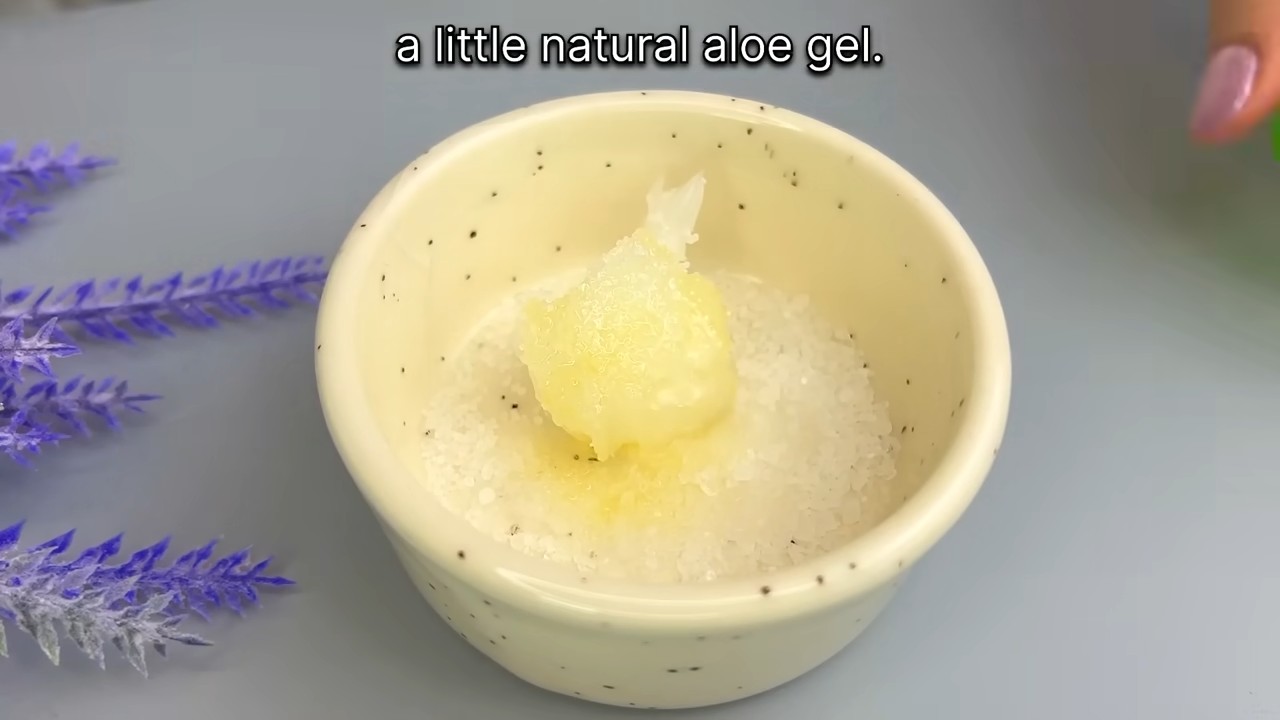
Unlocking the Power of Lemons: DIY Household Hacks You Need to Know
Lemons! They’re not just for lemonade anymore. I’m constantly amazed by how versatile these little citrus powerhouses are. Beyond their zesty flavor, lemons are packed with natural cleaning and deodorizing properties that make them perfect for a range of DIY household hacks. Forget harsh chemicals – let’s harness the power of lemon juice for a sparkling clean and fresh-smelling home!
The Magic of Lemon Juice: Why It Works
Before we dive into the hacks, let’s quickly understand why lemon juice is so effective:
* Acidity: Lemon juice is highly acidic, which helps break down grease, grime, and hard water stains. It’s a natural disinfectant, killing many common household bacteria.
* Antibacterial Properties: Lemons contain compounds that inhibit the growth of bacteria and mold.
* Deodorizing Power: Lemon juice neutralizes odors rather than just masking them. It’s especially effective against unpleasant smells like garbage disposal odors or lingering food smells.
* Natural Bleaching Agent: The citric acid in lemon juice acts as a mild bleaching agent, helping to brighten surfaces and remove stains.
* Non-Toxic: Unlike many commercial cleaners, lemon juice is a natural and non-toxic alternative, making it safe for your family and pets.
Hack 1: Sparkling Clean Microwave
Is your microwave looking a little… exploded? Mine definitely gets that way sometimes. This lemon trick is a lifesaver.
What you’ll need:
* 1 lemon
* 1/2 cup water
* Microwave-safe bowl
* Clean cloth or sponge
Step-by-step instructions:
1. Prepare the lemon solution: Cut the lemon in half. Squeeze the juice from both halves into the microwave-safe bowl. Add the lemon halves to the bowl as well.
2. Add water: Pour 1/2 cup of water into the bowl with the lemon juice and lemon halves.
3. Microwave the mixture: Place the bowl in the microwave and heat on high for 3-5 minutes, or until the water is boiling and the microwave is filled with steam.
4. Let it sit: Don’t open the microwave immediately! Let the steam work its magic for another 5-10 minutes. This will loosen all the stuck-on food particles.
5. Wipe clean: Carefully remove the bowl (it will be hot!). Use a clean cloth or sponge to wipe down the inside of the microwave. The grime should come off easily.
6. Enjoy your sparkling microwave: Admire your clean and fresh-smelling microwave!
Hack 2: Deodorizing and Cleaning Your Cutting Board
Cutting boards, especially wooden ones, can harbor bacteria and absorb odors. Lemon juice is a fantastic natural cleaner and deodorizer.
What you’ll need:
* 1/2 lemon
* Coarse salt (optional, but recommended for extra scrubbing power)
Step-by-step instructions:
1. Prepare the cutting board: Rinse the cutting board with water to remove any loose food particles.
2. Apply lemon juice: Cut a lemon in half. Squeeze some of the juice onto the cutting board.
3. Scrub with lemon: Use the cut side of the lemon to scrub the entire surface of the cutting board. Apply firm pressure, especially on areas with stains or odors.
4. Add salt (optional): For extra scrubbing power, sprinkle coarse salt onto the cutting board before scrubbing with the lemon. The salt acts as a gentle abrasive.
5. Let it sit: Allow the lemon juice to sit on the cutting board for 5-10 minutes to disinfect and deodorize.
6. Rinse and dry: Rinse the cutting board thoroughly with warm water and dry it with a clean towel.
7. Enjoy a fresh cutting board: Your cutting board should now be clean, deodorized, and ready for your next culinary adventure!
Hack 3: Shining Stainless Steel
Stainless steel appliances can be a pain to keep clean. Fingerprints, water spots, and smudges seem to appear out of nowhere. Lemon juice to the rescue!
What you’ll need:
* Lemon juice
* Soft cloth or microfiber cloth
Step-by-step instructions:
1. Dilute the lemon juice (optional): For sensitive stainless steel surfaces, you can dilute the lemon juice with equal parts water. This helps prevent any potential etching.
2. Apply lemon juice: Dampen a soft cloth or microfiber cloth with lemon juice.
3. Wipe the surface: Gently wipe the stainless steel surface in the direction of the grain.
4. Rinse (optional): If you used undiluted lemon juice, you may want to rinse the surface with a damp cloth to remove any residue.
5. Dry and buff: Dry the surface with a clean, dry cloth. Buff the surface to a shine.
6. Admire your gleaming stainless steel: Your stainless steel appliances should now be fingerprint-free and sparkling!
Hack 4: Cleaning and Deodorizing Your Garbage Disposal
Garbage disposals can get pretty stinky. This lemon trick is a simple and effective way to clean and deodorize them.
What you’ll need:
* Lemon peels (from lemons you’ve already used)
* Ice cubes
* Water
Step-by-step instructions:
1. Prepare the lemon peels and ice: Cut the lemon peels into smaller pieces.
2. Add ice and lemon peels to the disposal: Toss a handful of ice cubes and the lemon peel pieces into the garbage disposal.
3. Run the disposal: Turn on the cold water and run the garbage disposal for about 30 seconds. The ice helps to scrub the disposal blades, while the lemon peels release their cleaning and deodorizing oils.
4. Repeat if necessary: If the odor persists, repeat the process.
5. Enjoy a fresh-smelling disposal: Your garbage disposal should now be clean and smell lemony fresh!
Hack 5: Brightening Laundry
Lemon juice can act as a natural laundry booster and stain remover, especially for whites.
What you’ll need:
* 1/2 cup lemon juice
* Laundry detergent
Step-by-step instructions:
1. Add lemon juice to the wash: Add 1/2 cup of lemon juice to your washing machine along with your regular laundry detergent.
2. Wash as usual: Wash your clothes as usual, using the appropriate water temperature and cycle.
3. Sun-dry (optional): For extra brightening power, hang your clothes to dry in the sun. The sun’s rays will help to bleach and brighten the fabric naturally.
4. Enjoy brighter whites: Your white clothes should now be brighter and fresher!
Important Note: Always test lemon juice on a small, inconspicuous area of fabric before using it on an entire garment to ensure it doesn’t cause any discoloration.
Hack 6: Cleaning Grout
Grout can be a breeding ground for mold and mildew, and it can be tough to clean. Lemon juice can help!
What you’ll need:
* Lemon juice
* Old toothbrush or grout brush
* Spray bottle (optional)
Step-by-step instructions:
1. Apply lemon juice to the grout: You can either pour lemon juice directly onto the grout lines or spray it on using a spray bottle.
2. Let it sit: Allow the lemon juice to sit on the grout for 10-15 minutes to loosen dirt and kill mold and mildew.
3. Scrub the grout: Use an old toothbrush or grout brush to scrub the grout lines. Apply firm pressure to remove stubborn stains.
4. Rinse with water: Rinse the grout thoroughly with water.
5. Dry with a towel: Dry the grout with a clean towel.
6. Enjoy cleaner grout: Your grout should now be cleaner and brighter!
Hack 7: Polishing Copper and Brass
Lemon juice can also be used to polish copper and brass items.
What you’ll need:
* Lemon juice
* Salt
* Soft cloth
Step-by-step instructions:
1. Make a paste: Mix lemon juice and salt to form a paste. The salt acts as a gentle abrasive.
2. Apply the paste: Apply the paste to the copper or brass item.
3. Rub gently: Rub the paste gently onto the surface of the item using a soft cloth.
4. Rinse with water: Rinse the item thoroughly with water.
5. Dry and buff: Dry the item with a clean, dry cloth. Buff the surface to a shine.
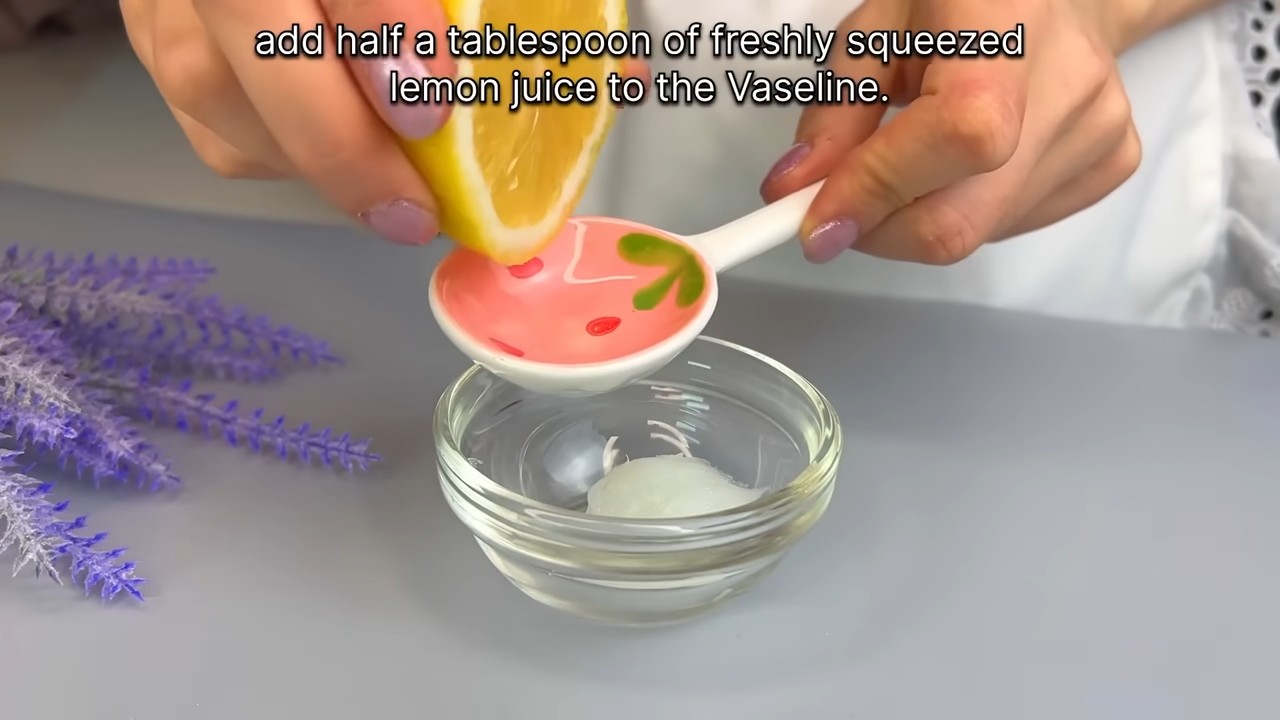
Conclusion
So, there you have it! Unlocking the power of lemon juice for a multitude of household fixes is not just a cost-effective alternative to harsh chemicals; it’s a testament to the cleaning and deodorizing prowess nature provides. From banishing stubborn stains to revitalizing dull surfaces, the versatility of this citrus superstar is truly remarkable. We’ve explored how a simple bottle of lemon juice can become your go-to solution for everything from kitchen grime to laundry woes.
But why is this DIY trick a must-try? Beyond the obvious financial benefits, using lemon juice offers a safer, more environmentally friendly approach to maintaining a clean and fresh home. You’re reducing your exposure to potentially harmful chemicals found in commercial cleaners, contributing to a healthier living environment for yourself, your family, and even your pets. Plus, the refreshing citrus scent is a welcome change from the often overpowering artificial fragrances of store-bought products.
Don’t limit yourself to the applications we’ve covered. Experiment with variations to suit your specific needs. For instance, try adding a few drops of essential oil, like lavender or tea tree, to your lemon juice cleaning solution for an extra boost of fragrance and antibacterial properties. You can also create a paste of lemon juice and baking soda for tackling particularly stubborn stains on grout or oven doors. For a more potent cleaning action on heavily soiled areas, consider heating the lemon juice slightly before application. Remember to always test any cleaning solution on an inconspicuous area first to ensure it doesn’t damage the surface.
The possibilities are truly endless when you embrace the power of lemon juice household fixes. It’s a simple, effective, and sustainable way to keep your home sparkling clean and smelling fresh.
We wholeheartedly encourage you to give these DIY tricks a try. We’re confident that you’ll be amazed by the results. And more importantly, we want to hear about your experiences! Share your successes, your challenges, and any creative variations you discover in the comments below. Let’s build a community of lemon juice enthusiasts and unlock even more of its hidden potential together. Your insights could help others discover new and innovative ways to harness the power of this amazing natural resource. So, grab a lemon, get creative, and let us know what you discover! We can’t wait to hear from you.
Frequently Asked Questions (FAQs)
Is lemon juice safe to use on all surfaces?
While lemon juice is generally safe and effective for many surfaces, it’s crucial to exercise caution and test it on an inconspicuous area first. Avoid using lemon juice on delicate or porous materials like marble, granite, or waxed wood, as the acidity can etch or damage these surfaces. Always dilute lemon juice with water, especially when cleaning painted surfaces or fabrics, to minimize the risk of discoloration. For metals like copper or brass, lemon juice can be used to remove tarnish, but be sure to rinse thoroughly and polish afterward to prevent further oxidation. When in doubt, consult the manufacturer’s recommendations for cleaning specific surfaces.
How long does lemon juice last once it’s been squeezed?
Freshly squeezed lemon juice is best used immediately for optimal flavor and potency. However, you can store it in an airtight container in the refrigerator for up to 3-4 days. After that, the flavor may start to degrade, and the juice may lose some of its cleaning power. Bottled lemon juice, which often contains preservatives, typically has a longer shelf life, but it’s still best to use it within a reasonable timeframe for the best results. Always check the expiration date on the bottle.
Can I use lemon juice to remove stains from colored clothing?
Lemon juice can be effective for removing certain stains from colored clothing, but it’s essential to proceed with caution. The acidity of lemon juice can sometimes cause fading or discoloration, especially on delicate or brightly colored fabrics. Always test the lemon juice on a hidden area of the garment first to ensure it doesn’t damage the fabric. Dilute the lemon juice with water and apply it directly to the stain. Let it sit for a few minutes, then rinse thoroughly with cold water. Avoid exposing the treated area to direct sunlight, as this can exacerbate fading. For stubborn stains, you may need to repeat the process or try a different stain removal method.
Does lemon juice have any antibacterial properties?
Yes, lemon juice possesses natural antibacterial and antiseptic properties due to its high acidity. The citric acid in lemon juice can help to kill or inhibit the growth of certain bacteria and fungi. This makes it a useful ingredient for cleaning and disinfecting surfaces in your home. However, it’s important to note that lemon juice is not a substitute for professional disinfectants, especially in situations where thorough sanitization is required. For everyday cleaning and deodorizing, lemon juice can be a safe and effective alternative to harsh chemicals.
What are some other uses for lemon juice besides cleaning?
Beyond its cleaning applications, lemon juice has a wide range of other uses. In the kitchen, it can be used to brighten the flavor of dishes, prevent fruits and vegetables from browning, and tenderize meat. In beauty, it can be used as a natural skin brightener, hair lightener, and acne treatment. Lemon juice can also be used to soothe sore throats, relieve indigestion, and boost the immune system. Its versatility makes it a valuable ingredient to have on hand for a variety of purposes.
Can I use lemon juice to get rid of hard water stains?
Absolutely! Lemon juice is a fantastic natural remedy for removing hard water stains from faucets, showerheads, and glass surfaces. The citric acid in lemon juice helps to dissolve the mineral deposits that cause these unsightly stains. Simply soak a cloth or sponge in lemon juice and apply it to the affected area. Let it sit for a few minutes to allow the lemon juice to work its magic, then scrub gently and rinse thoroughly with water. For stubborn stains, you may need to repeat the process or use a stronger concentration of lemon juice.
Is there a difference between using fresh lemon juice and bottled lemon juice for cleaning?
While both fresh and bottled lemon juice can be used for cleaning, there are some key differences to consider. Fresh lemon juice generally has a stronger scent and may be slightly more effective due to its higher concentration of citric acid. However, bottled lemon juice is more convenient and has a longer shelf life. Some bottled lemon juices may contain preservatives or additives that could affect their cleaning properties, so it’s important to check the ingredient list. Ultimately, the choice between fresh and bottled lemon juice depends on your personal preference and the specific cleaning task at hand.
How can I make my lemon juice cleaning solution smell even better?
Enhance your lemon juice cleaning solution’s aroma by adding a few drops of your favorite essential oils. Lavender, tea tree, eucalyptus, and lemon essential oils are all excellent choices that complement the natural citrus scent of lemon juice. Not only will these essential oils add a pleasant fragrance to your cleaning solution, but they also offer additional antibacterial and antiseptic benefits. Experiment with different combinations to create a custom scent that suits your preferences. Remember to use high-quality essential oils and add them sparingly, as a little goes a long way.


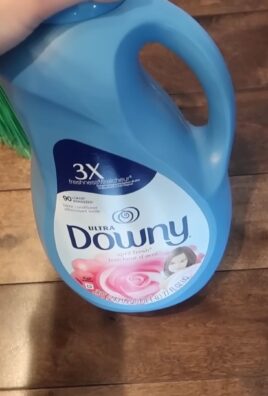
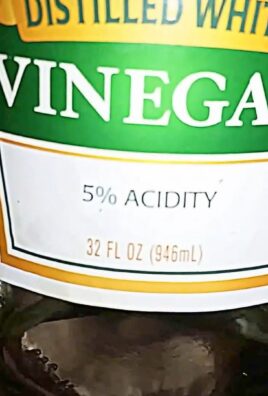
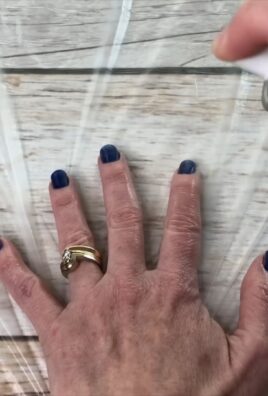
Leave a Comment